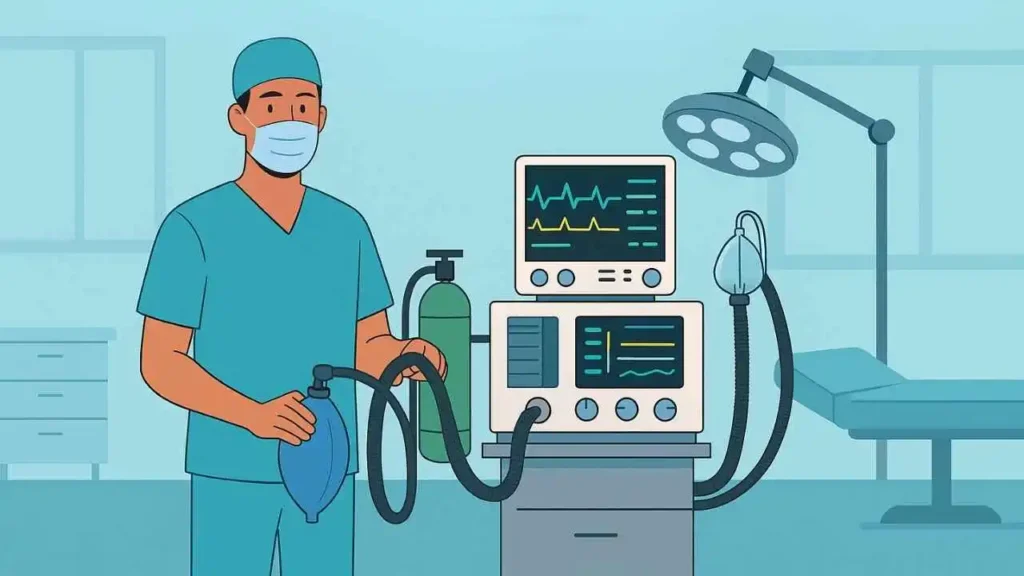My Journey Into Anesthesia Tech (Introduction)
Hey there, I’m glad you’re here. Let me walk you through something I’ve grown to really appreciate over the years — being an Anesthesia Tech. It’s one of those behind-the-scenes roles in hospitals that not many people talk about, but it plays a huge part in making surgeries safe and smooth.
I didn’t know much about this field when I first got curious. But through real experience, talking with professionals, and doing my research, I realized just how valuable this job is. And if you’re someone looking to explore a career in healthcare without spending a decade in school, this might be right up your alley.
What is an Anesthesia Tech?
An Anesthesia Tech, short for anesthesia technician, is someone who helps anesthesiologists prepare for and carry out surgeries. Basically, they make sure everything the anesthesiologist needs — like the tools, machines, and medications — is ready and working perfectly.
Let’s say a patient is going in for surgery. The anesthesia tech is there before the procedure, checking equipment like the ventilator and anesthesia machine, setting up IVs, and getting all supplies ready. During surgery, they assist the anesthesiologist by handing over tools, adjusting machine settings, and watching for any signs that something’s off.
So, while the anesthesiologist is focused on keeping the patient asleep and safe, the anesthesia tech is the one holding everything together in the background.
Learn More > How Much Do Ultrasound Techs Make?
Why Anesthesia Techs Matter So Much
Here’s the thing: surgeries can’t happen safely without anesthesia, and anesthesia can’t happen safely without proper equipment and preparation. That’s where anesthesia techs step in.
They don’t just set up machines. They prevent mistakes that could put someone’s life at risk. I’ve seen firsthand how a missing piece of tubing or a faulty monitor can delay a surgery or even create serious danger. A good anesthesia tech prevents all that by being two steps ahead.
They also bring peace of mind to anesthesiologists, who already have a lot on their plate. When the tech has everything under control, the doctor can focus completely on the patient.

Key Benefits of Being an Anesthesia Tech
So why should someone think about becoming an anesthesia tech? Let me break it down.
- Hands-on Work That Matters: You’re part of real surgeries, helping save lives.
- Shorter Schooling: Many programs take just 1–2 years.
- Good Pay Potential: Especially in countries like the U.S., Canada, or Australia where healthcare roles are in demand.
- In-demand Career: Hospitals always need skilled techs.
- Fast-Paced Environment: If you enjoy staying active and thinking on your feet, you’ll love this role.
Plus, it opens doors. Some begin their careers as anesthesia techs and eventually move on to roles like anesthesiologist, nurse, or surgical assistant.
Common Misunderstandings About Anesthesia Techs
Let’s clear a few things up.
Myth #1: “It’s just like being a nurse.”
Not exactly. Nurses provide hands-on care to patients both before and after surgery. Anesthesia techs focus specifically on the equipment, setup, and anesthesia side of things.
Myth #2: “It’s not that important.”
That couldn’t be more wrong. A well-trained tech can literally save lives by catching small mistakes before they become big problems.
Myth #3: “You don’t need to put in much effort to study.”
That’s not true either. You do need training, especially on how to handle machines, medications, and emergencies. But the focus is more on hands-on learning than just theory.
A Real-Life Example That Stuck With Me
There was one day that changed how I looked at this role forever. We were prepping for a major heart surgery. I noticed a small leak in one of the breathing tubes. It was tiny — but it could have been deadly if used during the procedure.
I reported it right away, and we replaced it in time. The anesthesiologist later told me that catching that issue may have saved the patient’s life. That moment made me realize just how important this job really is.
You might not be the one holding the scalpel, but your actions can be just as critical.
How to Become an Anesthesia Tech
If this career sounds interesting to you, here’s how to get started:
- Finish High School – Especially focus on science subjects.
- Get Into a Certified Program – Most countries offer 1–2 year courses. Look for one that’s approved by a medical board or authority.
- Hands-On Training – You’ll work in hospitals during your course, learning everything from setting up machines to assisting in surgeries.
- Get Certified (Optional but Helpful) – In the U.S., you can get certified by the American Society of Anesthesia Technologists and Technicians (ASATT).
- Start Working – You can apply at hospitals, surgical centers, or even emergency rooms.
The more experience you gain, the more confident you’ll feel in your skills. And trust me—you’ll feel a real sense of pride every time you walk into that operating room.
My Final Thoughts on Becoming an Anesthesia Tech
I never thought I’d end up in a role that’s so critical yet so underrated. Being an Anesthesia Tech has taught me how small actions can make big differences — especially when someone’s life is in your hands.
If you like helping people, working with your hands, and being part of a real team, this might be the best decision you ever make. Yes, it’s challenging — but it’s also deeply rewarding.
To sum it up: you don’t have to be a doctor to save lives. Sometimes, the true heroes are those working quietly behind the scenes to keep everything running safely.
Frequently Asked Questions (FAQs)
Q1: What’s the duration to become an Anesthesia Tech?
It typically takes 1 to 2 years of training after high school, and some programs include hands-on experience through internships or on-the-job training.
Q2: Is being an Anesthesia Tech stressful?
It can be fast-paced, especially in emergency situations. But with the right training and focus, it becomes manageable and even exciting.
Q3: Do Anesthesia Techs make good money?
Yes, especially in countries like the U.S., Canada, and Australia. Pay depends on your experience, location, and certification, but it’s a stable and growing field.



